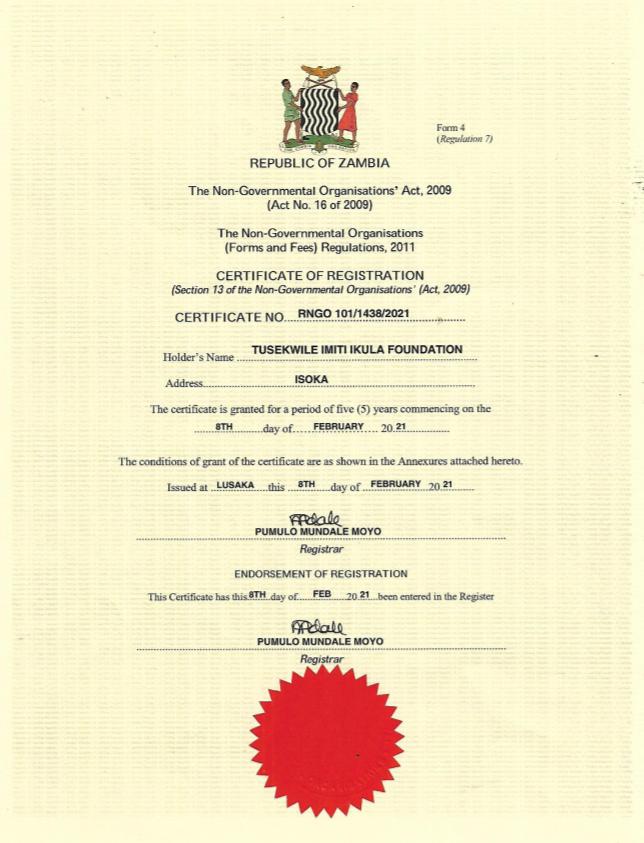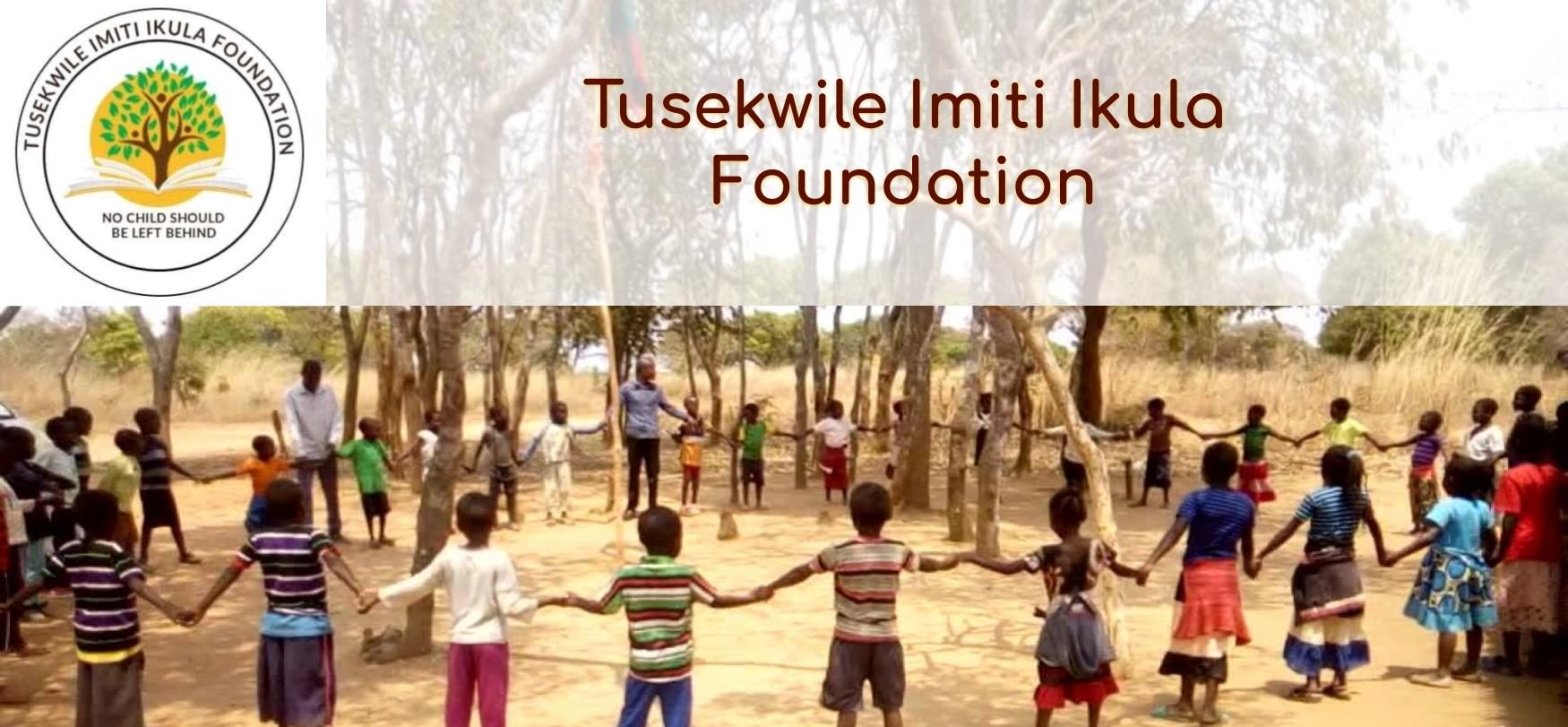In the 21st century, like no other we have seen a rise in the number of societies and non-governmental organizations mushrooming.
Many people across the world have been swindled by fake NGOs and Zambia consequently has not been spared.
Tusekwile Imit Ikula Foundaton is a certified Zambian non-governmental organization established by a passionate young and energetic man who is highly concerned, motivated and has remained contributive in the promotion of literacy and fight against gender based discriminations.
The organization was registered and certified to operate within the confines of the Zambian constitution.

Do you know operating a non-governmental organization without a certificate of registration is a crime?
Subject to section eleven of the Zambian constitution part III (NO. 16 of 2009), (1) a person can not operate a non-governmental organization that is not registered in accordance with this Act.
Therefore, a person who contravenes subsection (I) commits an offence and is liable, upon conviction, to a fine not exceeding three thousand penalty units or to imprisonment for a term not exceeding three years, or to both.
The fearful side of the story is that any person who is convicted of an offence under this Act is automatically disqualified from holding office in any non-governmental organization for a period of ten years from the date of conviction.
“This is the reason why TIIF operates in the confines of the law. TIIF is certified and recognized not only in Zambia but globally.”
Are there benefits of registering a non-governmental organization?
Registering and certifying your NGO is of utmost importance:
- Public interest: In many ways, NGOs and associations are the gatekeepers of public interest and safety. The purpose, value, and benefit of certification amounts to credibility which mounts up trust between the NGO and community.
It becomes easy to operate in communities when parents know their children are safe in your care and this is what every organization needs to operate effectively. - Quality skills standards: External funders want (and need) to know that the organization is reliable and could be entrusted with their projects and possess the technical skills necessary to serve the community.
Registering an organization reaps many benefits ranging from increased membership and participation to grant of charitable assistance from across the globe.
As can be seen, benefits that flow from registration are - guidance and help from relevant registration authorities, contract funds and support from the relevant departments, tax exemption from certain incomes, training opportunities, technical assistance, and concessions when obtaining vehicles, equipment and commodities.
However, it is important to note that these benefits are specific to a country or a local government and are not uniformly spread across all types of registration types, nor are all NGOs able to claim them.
